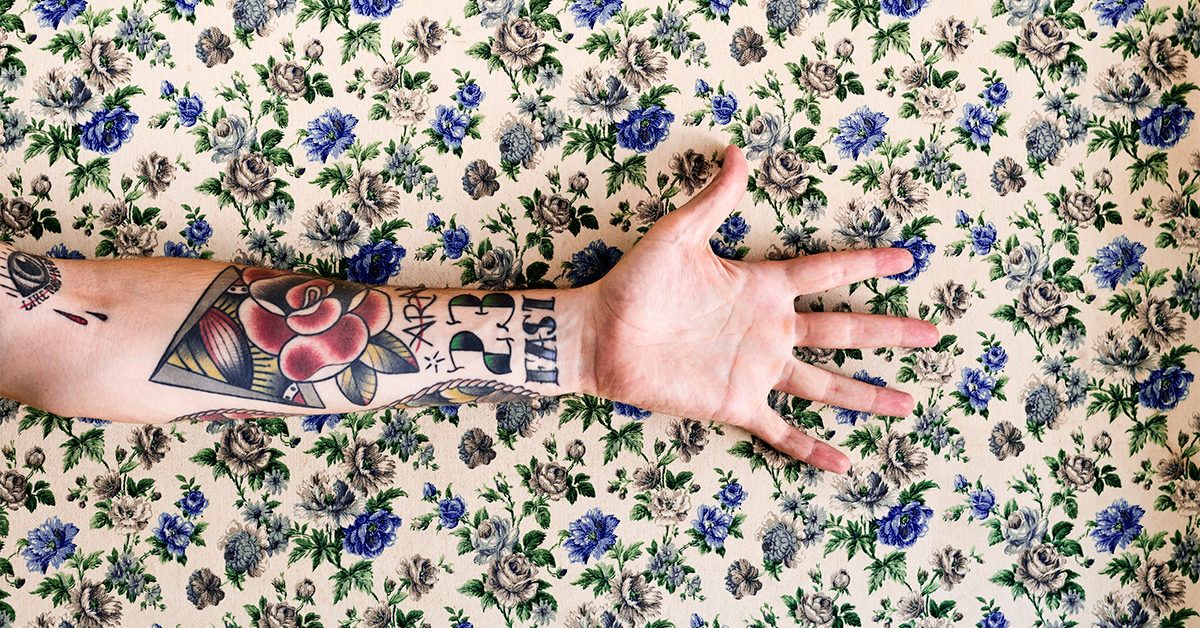Have you recently gotten a tattoo and noticed that it’s making you itch uncontrollably? Don’t worry, you’re not alone. Itchy tattoos are a common occurrence during the healing process. In this article, we will explore the various reasons why tattoos itch and provide you with some solutions to alleviate the discomfort.
Table of Contents
ToggleIt’s just healing
If your tattoo is fresh, it’s important to remember that it’s essentially an open wound. Similar to an itchy scab or dry skin, tattoos can itch as they heal. This itchiness typically subsides within a week or two. During the healing process, it’s crucial to use gentle moisturizers recommended by your tattoo artist to keep your skin hydrated and promote healing.
It could be infected
Getting a tattoo exposes the deeper layers of your skin to ink, needles, and possibly unsterilized tools. To avoid infection, it’s essential to choose a reputable tattoo artist who uses single-use or properly sterilized tools. Additionally, taking care of your new ink in the first two weeks is crucial, as this is when you are most prone to infection. If you suspect an infection, it’s imperative to consult a doctor to prevent further complications.
It could be an allergic reaction
Some tattoo dyes contain plastic materials and toxic metals like iron, calcium, and aluminum, which can cause allergic reactions in sensitive individuals. It’s worth noting that allergic reactions to tattoos can occur even years after the ink has healed. In some cases, unrelated medical issues or certain medications can also trigger allergies. While mild allergic reactions may improve on their own, persistent or worsening symptoms require medical attention.
It could be dirty ink
Contaminated ink poses a significant risk of infection. Even sealed containers of pigment or inks labeled as “sterile” can carry the potential for contamination, as stated by the FDA. It’s essential to be vigilant for symptoms of infection mentioned earlier and seek medical attention if necessary.
It could be a sun allergy
Sun allergy is a genuine concern for some tattooed individuals. Exposure to sunlight after getting a tattoo can cause an allergic reaction. To minimize the risk of a sun allergy, it’s advisable to avoid direct sunlight, follow your tattoo artist’s aftercare instructions, and keep your tattoo covered until it’s fully healed. Using water-resistant sunscreen with a high SPF is essential whenever you expose your tattoo to the sun.
It could be related to a preexisting skin condition
If you already have a skin condition like eczema or psoriasis, your tattoo may trigger a flare-up. The National Psoriasis Foundation suggests that even minor skin trauma, such as a sunburn or scratches, can worsen underlying psoriasis. If you suspect that your itchy tattoo is related to a preexisting skin condition, it’s best to consult both your dermatologist and tattoo artist for appropriate care instructions and treatment recommendations.
It could be sarcoidosis
Sarcoidosis is an autoimmune disease characterized by inflammation throughout the body. This inflammation can affect tattoos, causing swelling and itchiness, even years after the tattoo was done. If you have sarcoidosis and experience persistent itchiness in your tattoo, it’s important to consult a healthcare professional for guidance.
It could be an MRI’s fault
In rare cases, tattoos can react to MRI scans, causing burning, itching, or swelling. While this reaction typically resolves quickly on its own, it’s crucial to inform your doctor about your tattoo if you need to schedule an MRI.
Could it be skin cancer?
If you’ve ruled out all other possible causes for your itchy tattoo and notice other concerning skin symptoms like evolving moles or abnormal growths, it’s important to consult a dermatologist for a skin cancer check. However, there is no evidence linking tattoos directly to skin cancer.
Frequently Asked Questions
Q: How long does itching last after getting a tattoo?
A: Itching can vary from person to person, but it typically subsides within a week or two as the tattoo heals. Proper aftercare, including moisturizing and avoiding irritation, can help alleviate the itchiness.
Q: Should I scratch my itchy tattoo?
A: Scratching your tattoo can introduce bacteria and increase the risk of infection. It’s best to avoid scratching and opt for gentle moisturizers or cooling techniques to alleviate itchiness.
Q: Can I use over-the-counter creams to relieve itching?
A: It’s crucial to consult your tattoo artist or a healthcare professional before using any creams or ointments on your tattoo. Some products may contain ingredients that can cause adverse reactions or hinder the healing process.
Q: Can tattoos cause allergic reactions even after they’ve healed?
A: Yes, some people may experience allergic reactions to tattoo ink years after the healing process. If you notice persistent or worsening symptoms, it’s important to seek medical advice.
Conclusion
While itchy tattoos can be bothersome, understanding the reasons behind the itchiness and taking appropriate measures can help alleviate the discomfort. Remember to choose a reputable tattoo artist, follow proper aftercare instructions, and seek medical advice if necessary. With proper care, your tattoo will heal beautifully, leaving you with a stunning work of art to cherish for years to come.






